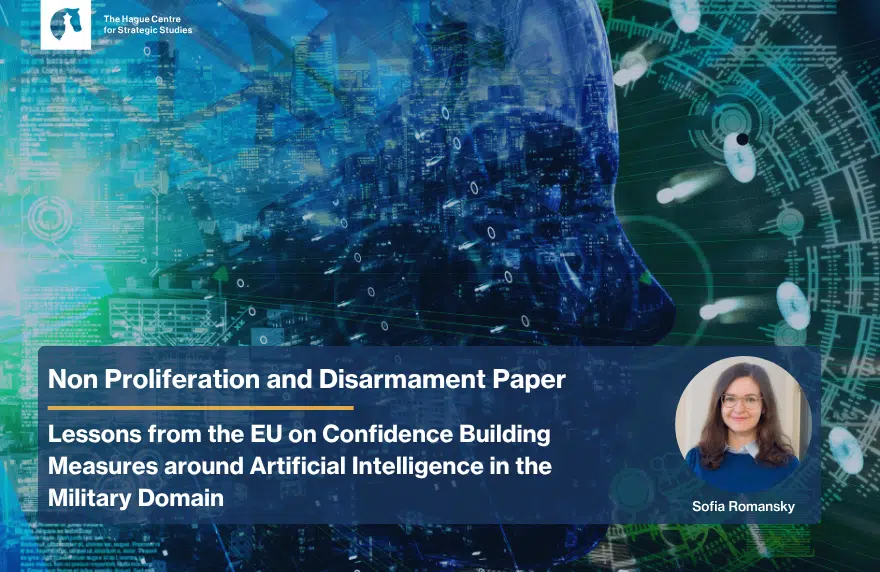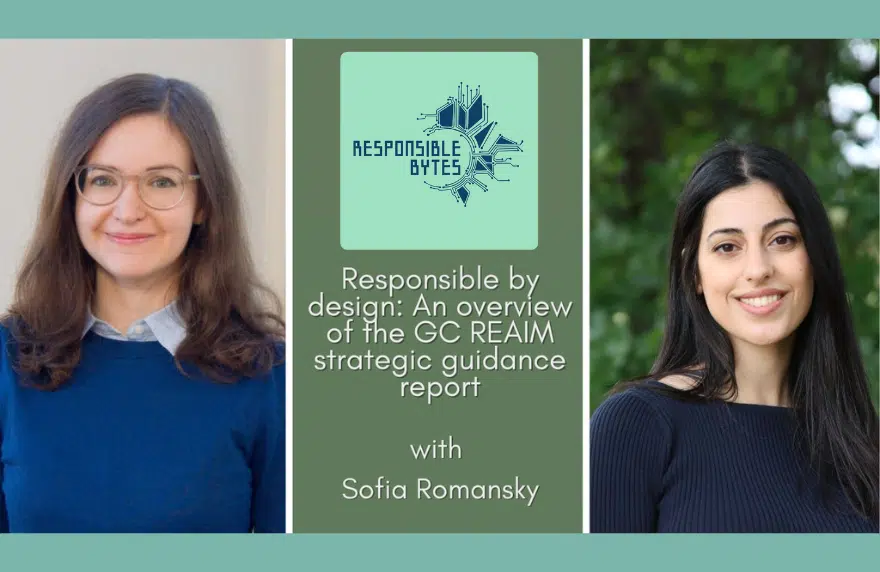HCSS Strategic Analyst and GC REAIM (Global Commission on Responsible Artificial Intelligence in the Military Domain) project coordinator Sofia Romansky recently had a paper published on AI in the military domain as part of the Non-Proliferation and Disarmament paper series from the EU Non-Proliferation and Disarmament Consortium.
You can find the article here: https://www.nonproliferation.eu/wp-content/uploads/2025/05/EUNPDC_no-97.pdf
First Online: May 2025
About this article
Integrating artificial intelligence (AI) into the military domain presents a number of significant challenges that have contributed to a deadlock in global governance deliberations. The rapid evolution of AI, its dual-use nature and its impact on the strategic calculations of actors promote the perception that trade-offs are required between security imperatives and ethical and legal considerations. Fortunately, a diverse toolbox of confidence-building measures (CBMs) offers a way forward for governance processes and initiatives by fostering trust and reducing uncertainty. Drawing on lessons from the content of and processes that led up to the European Union AI Act, this report examines how global governance deliberations might benefit from a focus on risks and risk mitigation in order to operationalize high-level principles, as well as multi-stakeholder engagement and investment in an information-based oversight body to ensure that the outcomes of deliberations are relevant and implementable. At the same time, this report also emphasizes the value of EU actorness and the role of European small and middle powers in the global governance arena around AI in the military domain, as well as the need to harmonize civilian and military regulation within the EU. By leveraging CBMs and drawing on the structured regulatory approach of the EU AI Act, global governance efforts can move beyond the current deadlock to foster a more coherent, risk-informed and practical framework for the responsible development, deployment and use of AI in the military domain.
Link to the rest of the Non-Proliferation and Disarmament Papers: https://www.nonproliferation.eu/activities/online-publishing/non-proliferation-papers/






